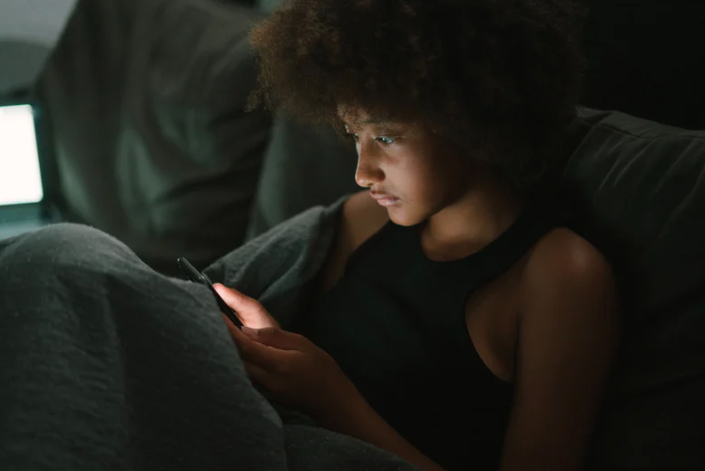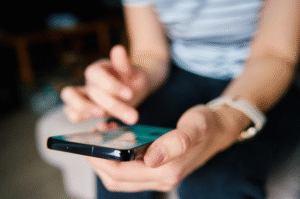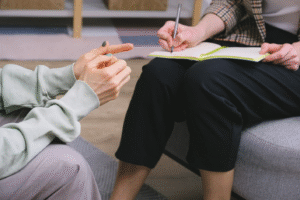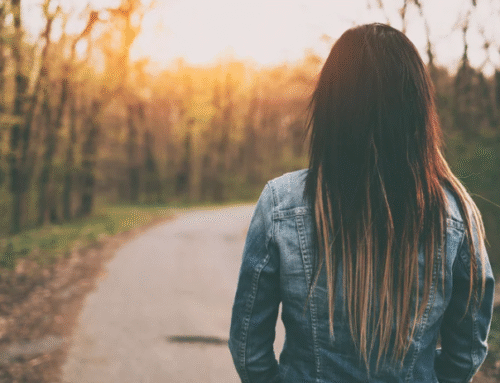Social media has transformed the way we connect, communicate, and share our lives. Platforms like Instagram, TikTok, Facebook, and LinkedIn let us keep in touch with friends, discover new opportunities, and express ourselves. But while these networks can bring people closer, they can also quietly fuel feelings of self-doubt, comparison, and anxiety.
For people already living with social anxiety, social media can be both a safety net and a trigger – a place where you can interact from a distance, but also somewhere that can make you feel scrutinised and judged.
So how exactly does social media interact with social anxiety? And what can you do to protect your mental health while staying connected online?
What Is Social Anxiety?
Social anxiety (sometimes called “social phobia”) is more than shyness or feeling nervous before a presentation. It’s a persistent fear of being judged, embarrassed, or negatively evaluated by others in social or performance situations.
Common signs include:
- Worrying excessively before, during, or after social interactions
- Avoiding social situations (online or offline)
- Physical symptoms such as sweating, blushing, rapid heartbeat, or shaky voice
- Overanalysing past conversations or posts
- Feeling intense self-consciousness in front of others
What the Numbers Say in Australia
Here’s what the stats tell us:
- About 1 in 10 Australians will experience social anxiety at some point in life.
- Around 7% of people experience it in any given year.
- Anxiety disorders overall affect over 3 million Australians — making them our most common mental health challenge.
- Only about 1 in 5 people with social anxiety seek professional help.
That last number is important – a lot of people are quietly struggling on their own.
How Social Media Can Worsen Social Anxiety
While social media isn’t inherently “bad,” its design and culture can create challenges for those prone to anxiety.
- The Comparison Trap
Social media feeds often highlight the best moments of people’s lives – holidays, promotions, new relationships. Constantly seeing these curated “highlight reels” of others lives can drive self-doubt and intensify feelings of inadequacy.
- Fear of Missing Out (FOMO)
Seeing friends or colleagues out without you can spark feelings of exclusion, even if it’s not intentional. Over time, FOMO can worsen social withdrawal.
- Performance Pressure
From choosing the right photo to crafting a clever caption, there’s pressure to present yourself in the “best” way. This can make posting feel like a performance, triggering self-doubt and overthinking.
- Online Scrutiny
Likes, comments, and follower counts can become measures of worth. Worrying about how your posts will be received — or whether they’re “good enough” — can heighten anxiety.
- Negative Interactions
Trolling, critical comments, or even being ignored online can feel deeply personal and reinforce fears of rejection.
Can Social Media Also Help with Social Anxiety?
It’s not all bad news – for some, online platforms provide a lower-pressure way to connect, especially for those who find in-person interactions overwhelming. Social media can:
- Offer spaces to meet like-minded people and find support communities
- Provide opportunities to express yourself creatively
- Help you maintain friendships when face-to-face contact isn’t possible
The key is finding a balance that protects your wellbeing.
6 Ways to Protect Your Mental Health Online
If you notice that social media use is worsening your anxiety, here are some practical steps:
- Limit Screen Time
Use built-in app timers or set specific “scroll-free” periods during your day. - Curate Your Feed
Unfollow or mute accounts that trigger comparison or self-doubt. Follow content that inspires or supports you. - Pause Before Posting
Ask yourself: Why am I posting this? If it’s mainly for external validation, it might be worth rethinking. - Engage with Supportive Communities
Seek out groups or forums where kindness and encouragement are the norm. - Practice Mindful Scrolling
Notice how you feel before and after using social media. If your mood dips, take a break. - Balance Online and Offline Life
Make sure social media complements, rather than replaces, face-to-face connections.
When to Seek Professional Support
If you find that social anxiety – whether triggered by social media or not – is interfering with your relationships, work, or daily life, it may be time to seek help. Clinical psychologists can help you understand the roots of your anxiety, develop coping strategies, and build confidence in both online and offline interactions.
At MyLife Psychologists, our team provides compassionate, evidence-based support tailored to your needs. We work with adults and adolescents to help you manage anxiety and improve your quality of life.
What Psychological Treatment for Social Anxiety Can Involve
Research shows that psychological therapy is an effective and lasting treatment for social anxiety, often more so than medication alone. The most well-established and evidence-based approach is Cognitive Behavioural Therapy (CBT), which has been shown in multiple studies – including large-scale meta-analyses – to significantly reduce symptoms of social anxiety.
CBT for social anxiety typically involves:
- Psychoeducation – learning about how social anxiety develops and what keeps it going
- Cognitive restructuring – identifying and challenging unhelpful thoughts that fuel anxiety
- Exposure therapy – gradually and safely facing feared social situations to reduce avoidance
- Behavioural experiments – testing out beliefs in real-life situations and collecting new evidence
- Social skills training – for those who may benefit from building communication confidence
Other approaches, such as Acceptance and Commitment Therapy (ACT) and mindfulness-based interventions, can also be helpful, particularly for people who respond well to values-based and acceptance-focused strategies.
In Australia, the National Health and Medical Research Council (NHMRC) and international guidelines recommend CBT as a first-line treatment for social anxiety disorder. Therapy can be short-term and highly targeted, but for some people, longer-term work may be beneficial, especially if social anxiety is linked to other mental health concerns.
Final Thoughts
Social anxiety isn’t a personal flaw — it’s a common, treatable condition. And while social media can make it feel worse sometimes, it can also be part of your recovery if used mindfully. With mindful use and the right support, you can stay connected without letting online life fuel your anxiety.
If social anxiety is holding you back – whether online, in person, or both – you don’t have to navigate it alone. Get in touch to discuss how we can help you feel more confident and connected.
References and Resources
Australian Psychological Society: Breaking Free of Social Anxiety
Beyond Blue – Social Anxiety Disorder
Australian Bureau of Statistics: National Study of Mental Health and Wellbeing
Centre for Clinical Interventions – Social Anxiety Treatment and Resources
Mental Health Online – Social Anxiety Program
THIS WAY UP – Social Anxiety Program
Healthdirect – Social Anxiety Program








